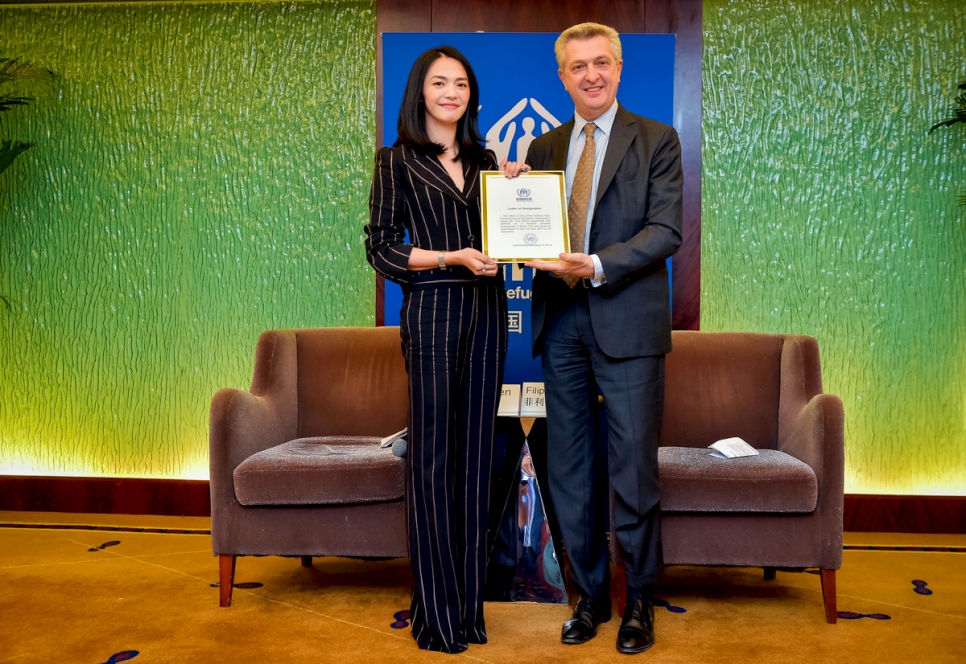China can play key role in solving refugee crises - UNHCR chief
On his first visit to Beijing, Filippo Grandi was encouraged by China's potential to use development projects to address the root causes of displacement.

UN High Commissioner for Refugees Filippo Grandi addresses future diplomats at the China Foreign Affairs University in Beijing. His talk focused on challenges in global forced displacement. © UNHCR/Wang Wei
BEIJING, China, – UN refugee chief Filippo Grandi today highlighted China’s potential to address the root causes of displacement and resolve refugee crises globally through wide-ranging development initiatives.
The UN High Commissioner for Refugees is in Beijing this week on his first official visit to China. In the last two days he has met with top government officials, UNHCR’s Goodwill Ambassador Yao Chen, and addressed future diplomats at the China Foreign Affairs University.
“UNHCR and China have been cooperating for 40 years. During that time China has become a major actor on the international stage,” said Grandi. “The global refugee issue has also grown bigger and more complicated as factors causing people to flee are increasingly mixed.”
“We hope that China can invest ... resources directly in countries hosting large numbers of refugees."
Reflecting these needs, China’s contribution to refugee programmes has increased significantly – from US$2.8 million in 2016 to US$12.5 million so far this year, much of it on the sidelines of the recent “Belt and Road” forum held in Beijing.
Led by China, the Belt and Road initiative is a far-reaching platform for international cooperation in multiple sectors including trade, investment, infrastructure, connectivity and people-to-people exchanges. It spans more than 60 countries in Asia, Europe and Africa – some of which are producing or hosting refugees.
“The Belt and Road initiative is about peace, prosperity and inclusion,” said Grandi. “We hope that China can invest some of those resources directly in countries hosting large numbers of refugees and displaced people. In doing so, it can empower refugees and their host communities in a win-win situation for all.”
The initiative also has the potential to pave the way for refugee solutions, the High Commissioner noted. “Through its many development projects, China can help to stabilize areas in conflict and address the root causes of displacement.”
"China can help to stabilize areas in conflict and address the root causes of displacement."
Grandi noted that soft power was equally important in changing attitudes towards refugees, as Chinese actress Yao Chen has done. Through her 80 million-strong social media following in China, she has been a strong voice for refugees in the last seven years.
During their meeting on Wednesday, Grandi thanked her for advocating on behalf of refugees, and presented her with a certificate renewing her tenure as Goodwill Ambassador for two more years.
“I remain committed to the refugee cause for as long as I’m needed,” said Yao Chen. “But I long for the day I become ‘unemployed’ when there are no longer refugees in the world.”

In Beijing, UNHCR High Commissioner Filippo Grande presents a certificate of renewal to UNHCR Goodwill Ambassador Yao Chen to extend her GWA for 2 years, till June 2019. © UNHCR/Wang Wei
